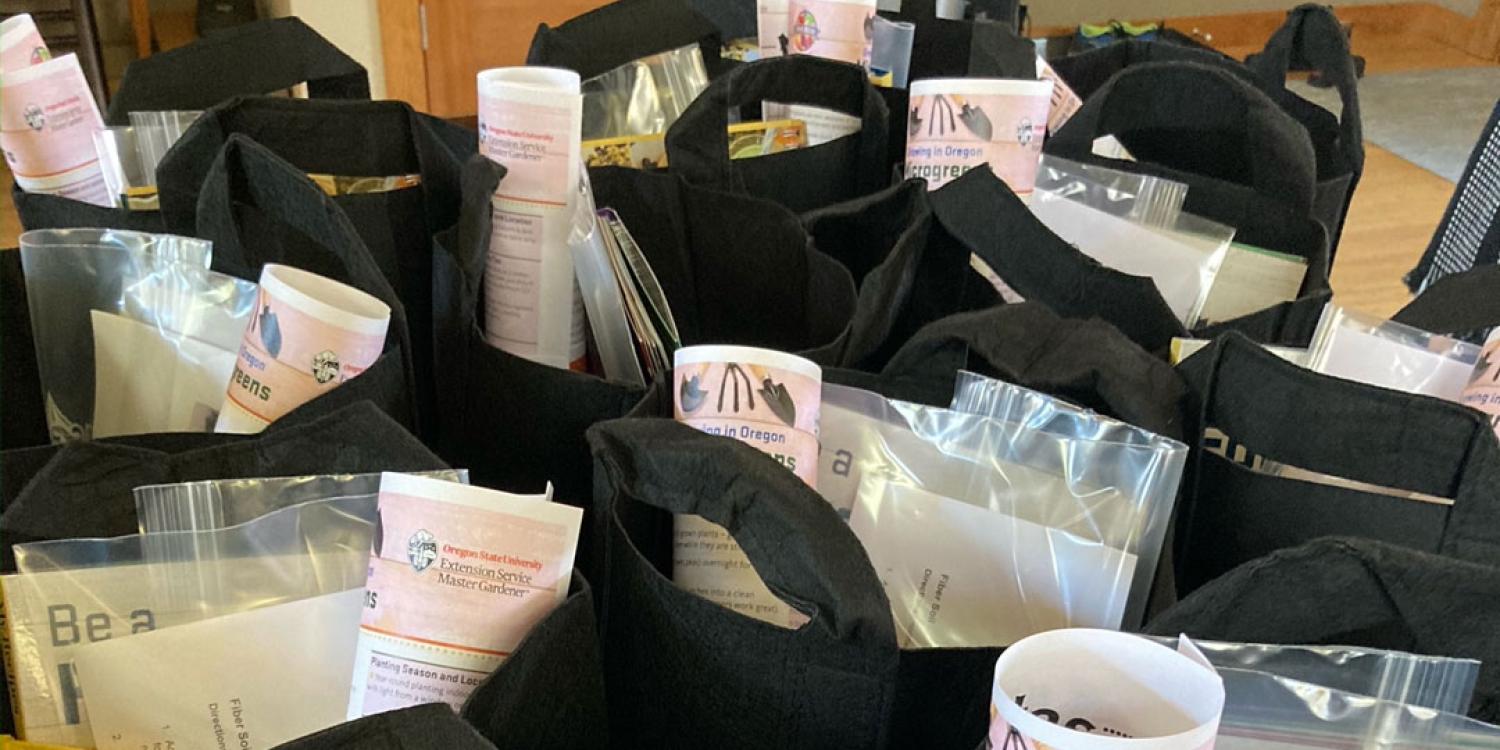
Inadequate access to healthy food is a concerning issue that represents a significant barrier to healthy eating and achieving food security. Individuals with limited income and resources, such as those reached by the federal Supplemental Nutrition Assistance Program Education (SNAP-Ed), are among those disparately impacted in their ability to access healthy food.
Nutrition educators in Oregon State University Extension’s Family and Community Health Program recognized that an effective strategy for increasing access to healthy food for individuals and families is growing food, and research shows that children living in a home with a garden eat significantly more vegetables than those without access to a home garden. Container gardening offers an effective solution for individuals with limited space for gardening.
In response, Stephanie Russell, SNAP-Ed program coordinator in Lincoln County on the Oregon Coast and Katie Ahern, SNAP-Ed program coordinator in Crook and Deschutes counties in central Oregon, teamed to create Project PLANT (Partnerships Link Agriculture and Nutrition Together). The project provided kits and materials in English and Spanish that allowed limited-income individuals and families to grow their own food. Each themed grow kit contained a fabric growing pot, seeds packaged with a child-friendly graphic and soil.
The kits also included a Food Hero cookbook, a Food Hero Growing in Oregon monthly newsletter, Food Hero coloring pages and/or other activity sheets, a QR code card linking to a Food Hero vegetable theme page, and a survey. Food Hero is a statewide initiative of the Oregon Supplemental Nutrition Assistance Program Education (SNAP-Ed) program and was developed by OSU Extension in English and Spanish.
As a result of this work, Extension distributed an estimated 1,000 kits in Lincoln County and 150 in Deschutes and Crook counties. Participants completed an online survey in English or Spanish in which they reported on the usefulness of the grow kit supplies and materials and made suggestions for program improvements. They also indicated their satisfaction with container gardening and their level of access to and interest in outdoor gardening spaces and identified barriers to accessing outdoor gardening spaces.
Preliminary survey results from Lincoln County showed that 86% of respondents found the grow kits to be “useful” or “very useful.” Seventy-six percent of respondents found container gardening to work “well” or “very well.” Half of the respondents who indicated they didn’t have access to an outdoor garden space said they would like to be able to use an outdoor garden space.
Of the participants who responded to the Spanish survey, 100% found the grow kits to be “very useful,” and 40% of respondents found container gardening to work “very well,” while 20% found it “did not work very well.” All of these respondents who indicated they didn’t have access to an outdoor garden space said they would like to be able to use an outdoor garden space.
These respondents said they would like seeds that are more culturally relevant such as cilantro, tomatoes and hot peppers. In response, Food Hero, working with creative partner Rootopia, created a Growing in Oregon tip sheets and character seed graphics devoted to tomatoes and hot peppers.
The preliminary survey results from Deschutes County showed that all participants used the grow kit materials, and 83% reported that the cookbook was most useful to them. They all said they have an outdoor space for personal gardening.
In Lincoln City, the survey results were used in part to receive a $30,000 grant from Danone Institute North America to implement a One Planet. One Health initiative. The project, Juntos en el Jardín (Together in the Garden), focuses on creating an inclusive and culturally competent food gardening system that will provide access to outdoor growing space for vulnerable and underserved community members.